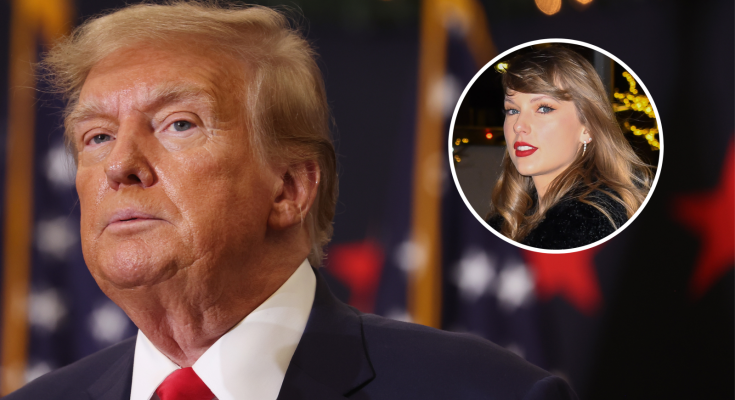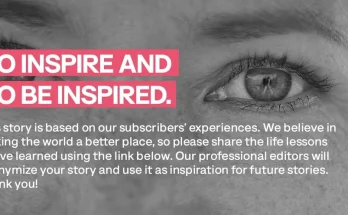Taylor Swift’s trip to the US Open Men’s Final on Sunday looked, at first glance, like a normal day in the life of the world’s biggest pop star. Swift was joined in her VIP box at Flushing Meadows by boyfriend Travis Kelce, the Haim sisters and Kelce’s Kansas City Chiefs teammate Patrick Mahomes – and to the fury of Swifties the world over, his wife Brittany.
To those unfamiliar with the ins and outs of Swift’s social circle, her decision to hang out with Kelce’s friends was less of a fun day out than an event loaded with controversy. Texas native Brittany, 29, who has been dating Patrick, the NFL star quarterback, since high school, drew the ire of social media users last month when she “liked” a public Instagram post by Donald Trump that included 20 of his promises for America. These included: “Carry out the largest deportation operation in American history” and “Cut federal funding for any school pushing Critical Race Theory, Radical Gender Ideology”.
Refusing to apologise, Brittany, a former athlete turned entrepreneur, proceeded to like messages from other Republicans who praised her for not backing down, before sharing a post from Christian blogger Shane Pruitt on Instagram Stories that read: “Contrary to the tone of the world today … You can disagree with someone, and still love them. You can have differing views, and still be kind.” The call for kindness was echoed by some fans in Swift’s camp, who insisted the singer could be friends with whomever she wanted, from either side of the political divide. But last week, Trump added more fuel to the fire when he posted on Truth Social: “I want to thank beautiful Brittany Mahomes for so strongly defending me.”
In light of the controversy, many Swifties had breathed a sigh of relief when her appearance at the first Chiefs game of the season last Thursday didn’t involve a public love-in with Brittany: maybe the 34-year-old was distancing herself after seeing her fans’ concern, they wrote online. Perhaps she was finally going to endorse Kamala Harris for the presidency (she backed Joe Biden four years ago, and even baked cookies emblazoned with “Biden Harris 2020”). But then came the Open, and the event became a stage for what critics construed as Swift’s continued political cowardice.
Despite her unparalleled influence – she has 284 million followers on Instagram and is the most streamed artist globally on Spotify – Swift has opted to stay quiet on the question of whether Donald or Kamala should reach the White House in 2024. Rumours that she would appear at the Democratic National Convention to sing a song with Beyoncé proved false; even Trump’s sharing of deepfake AI-generated images of Swifties wearing Maga T-shirts was met with silence, rather than a cease-and-desist from Swift’s team.
As a result, her fans have taken campaigning into their own hands. The non-profit organisation “Swifties4Kamala” has decided to campaign for the Democrats without her, and has already raised hundreds of thousands of dollars in donations. Elsewhere, popular fan accounts on X and Instagram have threatened to stop listening to her music if she doesn’t endorse Harris.
It is easy to dismiss these threats as the empty, inconsequential grumblings of “woke” Gen Z, which will have little impact on pop’s richest woman. But Swift occupies a unique position in the industry because of her level of fame and her close relationship with her fans, who see her as a moral force as well as a singer. It has become a double-edged sword: on the one hand there is her material successes – her globe-spanning, record-breaking Eras tour, 14 Grammy awards, billions in the bank – and on the other lurks the constant requirement for her to be seen as a force for good beyond her music. Her refusal to sever ties with Brittany is in stark contrast to how quickly her relationship with The 1975 frontman Matty Healy broke down last year after her fans accused him of being racist.
When Swift publicly endorsed Biden in 2020 her career was in a very different position. Her seventh album Lover, released the year before, had not performed as well as hoped. That same year, she dropped her ultra-personal Netflix documentary Miss Americana, and with it officially ended her decision to stay “out” of national politics.
Today, the singer has never been more famous, nor more marketable – which is also why her fans are growing increasingly twitchy about her lack of an endorsement for Harris’s campaign. Swift’s political influence has precedence: last year, her call for fans to register to vote led 35,000 people to sign up within 24 hours, while her vocal support of women’s and LGBTQ+ issues has made her a sort of figurehead for Left-wing American women. Before Swift was the voice of the liberal, however, she was the quintessential all-American girl – a country singer beloved of Left and Right. Raised in a small Pennsylvania town by her businessman father Scott, who later moved the family to Nashville to further Swift’s career, her early music was packed with pious religious messaging and tales of falling in love with the boy next door.
Not many people in Nashville could have predicted that she would later ditch this conservative image to become a commercial pop star. It was a switch criticised by those closest to the singer, who feared any open support of the Democrats would damage her reputation among the US Right; in Miss Americana, her father and adviser express concerns that her future tours might alienate her core fanbase if she were to publicly criticise Trump.
Some fans have argued that her lack of an endorsement is down to increased safety concerns: the final London shows of the Eras tour were dampened by the cancellation of her shows in Vienna. But for others, Swift’s refusal to “pick a side” in what is shaping up to be the most fraught election in America’s history is betrayal of the harshest kind: a woman with all the money and power in the world, choosing to ride out the storm in her ivory tower.





